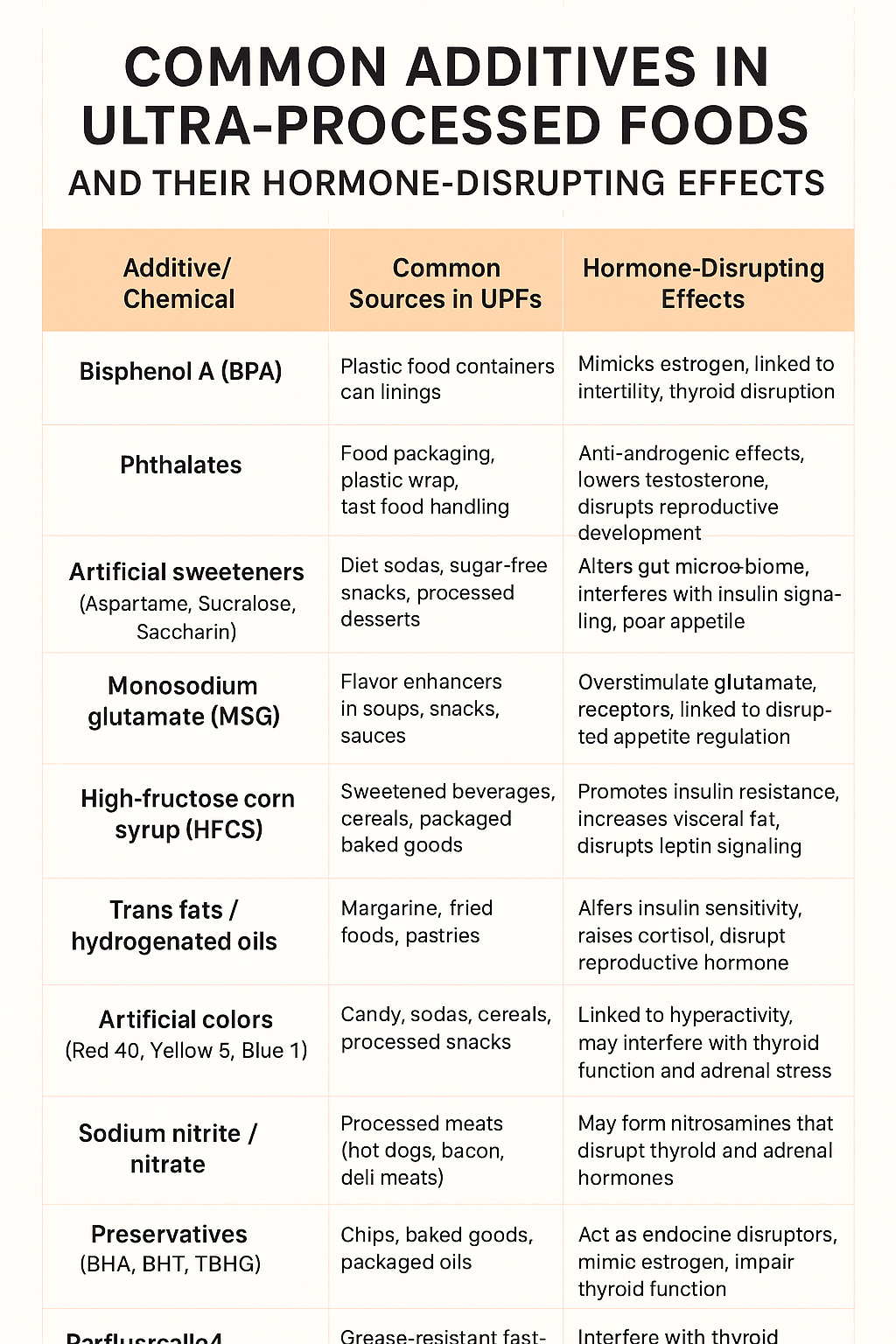Ultra-Processed Foods and Hormone Disruption: A Hidden Health Risk
In today’s fast-paced world, ultra-processed foods (UPFs) have become a dietary staple. Packaged snacks, sugary cereals, frozen meals, and sweetened beverages are convenient and heavily marketed, but beneath the appealing flavors and long shelf life lies a hidden danger—hormone disruption.
Hormones are chemical messengers that regulate metabolism, reproduction, growth, mood, and stress response. When they are thrown out of balance, the consequences can be far-reaching, ranging from weight gain and infertility to thyroid dysfunction and mood disorders. Emerging research suggests that UPFs contribute to this imbalance in several ways.
First, many UPFs are loaded with refined sugars and unhealthy fats. High sugar intake spikes insulin production, which over time can lead to insulin resistance—a precursor to diabetes and metabolic syndrome. This not only disrupts blood sugar control but also influences sex hormones like estrogen and testosterone, contributing to conditions such as polycystic ovarian syndrome (PCOS) and low testosterone in men. Processed vegetable oils, often rich in omega-6 fatty acids, can also drive inflammation, further disturbing hormone signaling.
Second, UPFs often contain additives and preservatives that act as endocrine disruptors. Chemicals such as phthalates, bisphenol A (BPA), and certain artificial colors or flavorings can mimic or block natural hormones. For example, BPA, commonly found in food packaging, has estrogen-like effects that can interfere with fertility and increase the risk of hormone-dependent cancers. Even small, repeated exposures can accumulate and alter the delicate hormonal balance.
Another concern is how UPFs affect the gut microbiome. A healthy gut is essential for proper hormone regulation, including the metabolism of estrogen and cortisol. Diets high in processed foods reduce microbial diversity, impairing hormone detoxification and increasing systemic inflammation. This can trigger imbalances in stress hormones, worsen PMS, and contribute to mood swings.
Finally, the low nutrient density of UPFs plays a role. Hormone production depends on vitamins, minerals, and amino acids. Zinc, magnesium, vitamin D, and B vitamins are critical for thyroid health, adrenal function, and sex hormone balance. When diets are dominated by UPFs, nutrient deficiencies emerge, further impairing hormonal harmony.
From a holistic perspective, minimizing UPFs and focusing on whole, nutrient-dense foods is essential for hormone health. Fresh vegetables, fruits, lean proteins, healthy fats, and fermented foods provide the building blocks hormones need. By reducing reliance on ultra-processed products, we can support a balanced endocrine system and protect long-term wellness.

